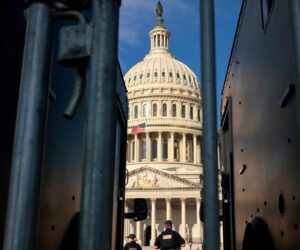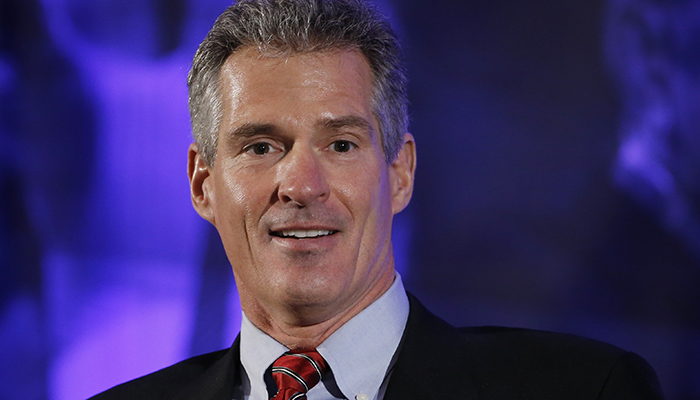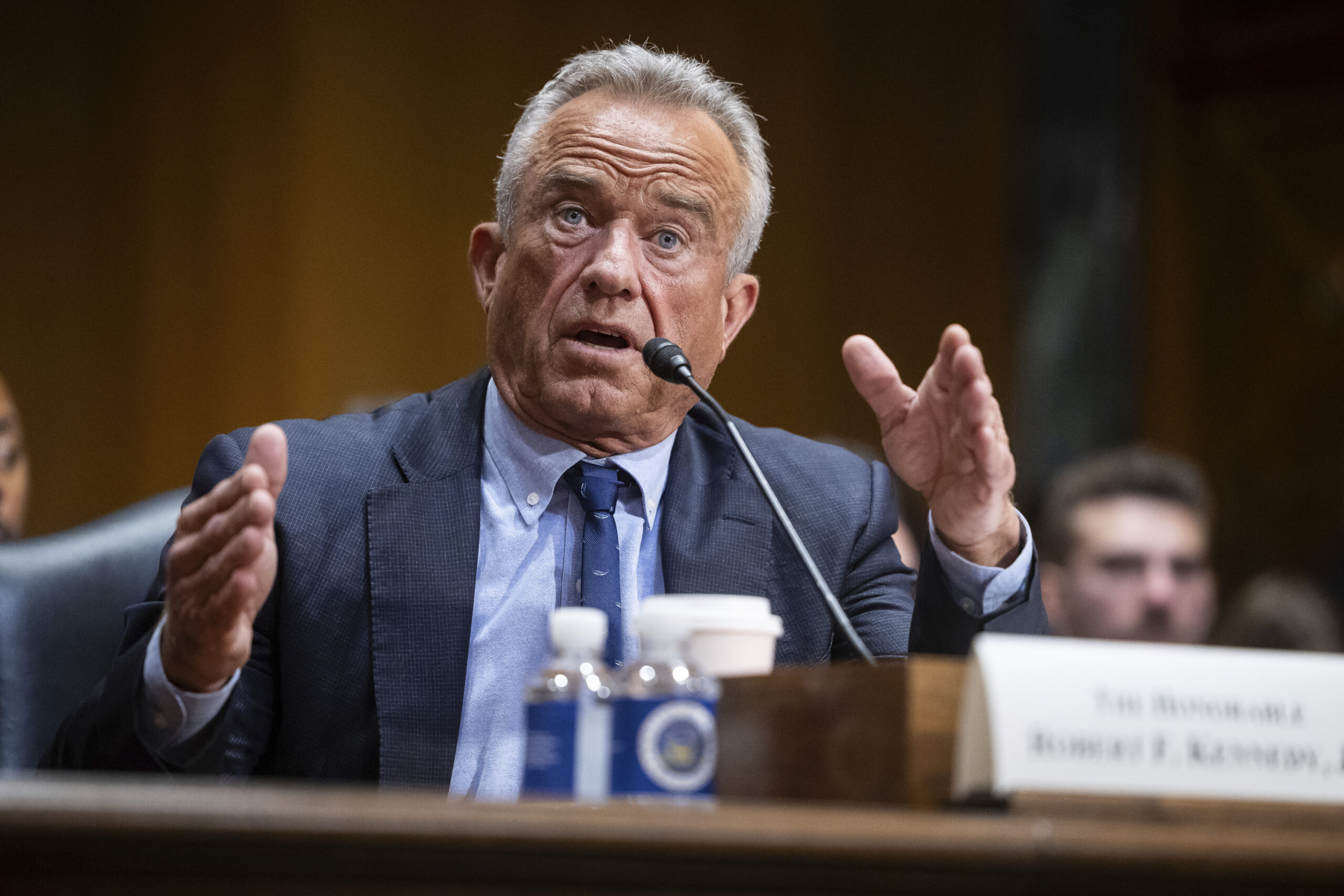As President Donald Trump’s war on Harvard University intensifies, he is shifting his message in a seeming bid for new allies — apart from punishing the institution, he’s also promising to elevate the working class.
In a post on Truth Social on Monday, Trump proposed sending $3 billion in research funding cut from Harvard to trade schools across the country. “What a great investment that would be for the USA, and so badly needed!!!” he wrote.
With that money, he told reporters at the White House on Wednesday, “you can have the best trade schools anywhere in the world.”
It’s unclear how Trump’s proposal would work, where the money would come from or how it would be distributed. The Trump administration didn’t respond to questions.
But while the plan may be untenable, some education experts say pitting research at the world’s wealthiest university against support for low-cost trade schools is a savvy move.
“Politically it’s incredibly effective,” said Nat Malkus, deputy director of education policy at the American Enterprise Institute, a right-leaning think tank. “He communicates in a very brief post on Truth Social where his favor lies, and it lies not with the, you know, elite cosmopolitans at Harvard but with everyday Americans.”
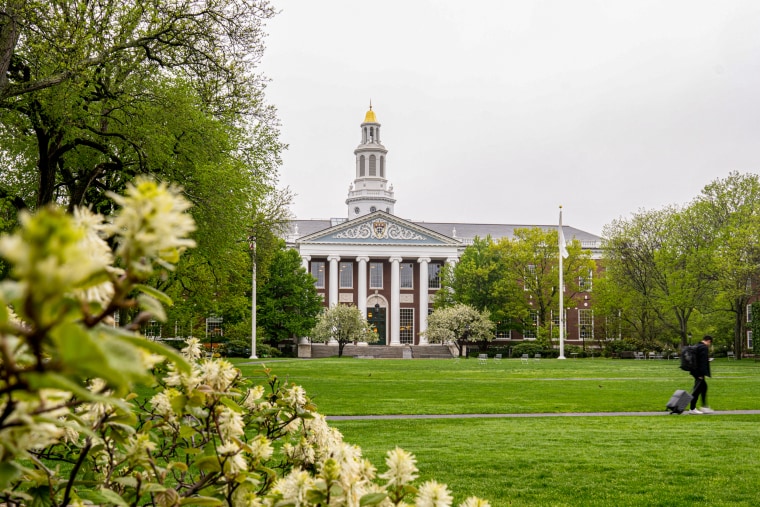
Trump has blasted elite colleges for years as out-of-touch institutions that don’t do enough to help students avoid debt, often singling out Harvard, even before the current conflict. More recently, the Trump administration has accused Harvard of failing to address antisemitism and issued a mandate for sweeping reforms in whom the university can admit and hire.
When Harvard refused the demands, the administration cut nearly $3 billion in research funding and attempted to end its ability to host international students.
This week’s push represents a new tactic: trying to build public support by implying that Harvard’s success comes at a cost to working Americans.
Most of the federal government’s cuts to Harvard have been to health research, such as studies on cancer and lung disease, which the university has defended as vital. Harvard didn’t respond to a request for comment. In an NPR interview, Harvard President Alan Garber challenged Trump’s approach.
“The real question is how much value does the federal government get from its expenditures on research,” he said. “There is a lot of actual research demonstrating the returns to the American people have been enormous.”
The Trump administration defended the cuts. “American universities that are committed to their academic mission, protect students on campus, and follow all federal laws will have no problem accessing generous taxpayer support for their programs,” Madi Biedermann, a spokesperson for the Education Department, said in a statement.
Improving vocational education has been a priority in both Democratic and Republican administrations. Trump has spoken about it in tandem with his quest to bring manufacturing jobs back to the United States. Last month, he signed an executive order directing federal agencies to coordinate a national strategy on career and technical education.
At her confirmation hearing, Education Secretary Linda McMahon emphasized the value of such schools. “Our vocational and skilled-based training is not a default education; it can be front and center so that students who are inclined to go in that direction actually should be encouraged to do that,” she said.
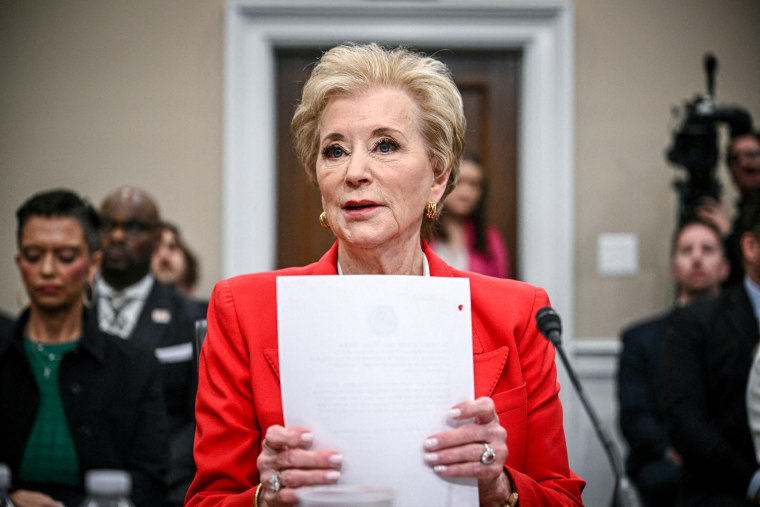
Jerome Grant, CEO of Universal Technical Institute Inc., one of the largest private chains of trade schools, said he has had meetings with Education Department officials about increasing support for vocational education, but not at the expense of other colleges. His concern is less about money, he said, than about helping teens and young adults see the benefits of trade school.
“We’re not in the fray with Harvard or anything — we don’t have any beef with any four-year schools,” Grant said. “We just believe that for a lot of kids in America, four-year schools shouldn’t be thought of as their only path after high school.”
The idea that all students should strive for degrees from traditional four-year colleges has given way in recent years amid economic changes and mounting student debt, creating an ascendant bipartisan agreement that other education options should be supported, too.
Trade schools focus on preparing students for certification in specific professions without the general education courses or electives of traditional colleges. So they typically take less time to complete and are less expensive than four-year colleges. Some trade schools are housed at community colleges, largely funded by states and federal student aid.
But many trade schools are also considered for-profit colleges, a sector of higher education that has been scrutinized in the past for failing to deliver on its promises to students.
Education policy experts say the “One Big Beautiful Bill” that Trump urged House Republicans to pass could weaken regulations of the schools — and harm working students. As currently drafted, it would roll back regulations that hold career-training programs accountable if their students don’t earn enough after they graduate and expand Pell Grant use to students at shorter-term and unaccredited education programs. It would also limit Pell Grant eligibility for part-time students, many of whom are working-class.
Neither the White House nor the Education Department responded to questions about the provisions.
Jason Altmire, president of Career Education Colleges and Universities, an association that represents private trade schools and for-profit colleges, said his organization welcomes the reforms in the House bill and Trump’s suggestion of pumping more money into trade schools.
Altmire, a former Democratic House member from Pennsylvania, called the Truth Social post a “continuation of a lot of good things President Trump has done and said” about the schools he represents. (A former chief policy officer at Altmire’s group has been tapped to become the country’s top higher education official.)
He said that his sector of for-profit schools — whether they are vocational or degree-awarding — has been unfairly maligned based on a few extreme examples and that they represent a way forward for many people.
“I don’t view it as a zero sum, but I do view it as a changing of the narrative of what’s the priority of this country when it comes to higher education,” he said.
Carolyn Fast, director of higher education policy at the Century Foundation, a progressive think tank, also supports vocational education and questions the need to pit it against schools like Harvard.
“It’s a false narrative to say the fact that we’re funding research at these colleges means we’re not funding opportunities for people to have good career education,” she said. “Both are good goals for us to have.”





